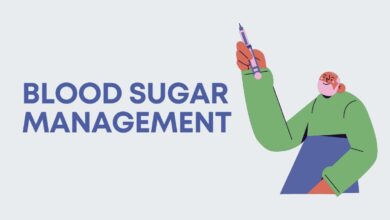How to Get in Shape? Avoiding These Ten Challenges
The fight to maintain a healthy weight (how to weight loss at home) endures as a continual issue for many people in the ever-changing world of health and wellbeing. While many variables might lead to weight increase, dietary decisions are crucial in establishing how our bodies are made up. In this post, we will examine 10 foods that might obstruct weight reduction efforts and talk about the reasons why they may be able to derail even the most ardent attempts to lose weight.
The Fine Balance of Weight Control
Weight management is a complex issue that calls for a seamless interaction between a balanced diet, frequent exercise, and lifestyle changes. In spite of the wide range of diet fads and strategies out there, certain foods have continuously been connected to weight gain because of their high calorie density, lack of nutritional value, or effects on our bodies’ metabolic processes. People may make educated decisions to promote a better relationship with food and achieve their weight reduction objectives by comprehending these foods and the processes behind their effects.
1. Sugary drinks
Sodas, fruit juices, and energy drinks are among the sugary drinks with the highest sugar content and lowest satiety levels. By adding an excess of empty calories to the diet, these beverages may considerably contribute to weight gain. Additionally, their liquid shape does not provide the same amount of satiety as solid meals, which often results in overeating calories throughout the day.
2. Prepared Foods
Chips, cookies, and crackers are examples of processed foods that are often high in salt, refined sugars, and harmful fats. These meals are high in calories and deficient in the vital elements that sustain satiety and general health. They are a frequent barrier to weight reduction because of their easy packaging, seductive tastes, and potential for thoughtless consuming.
3. Quick meals
Fast food products usually include large amounts of salt, processed carbs, and harmful fats. These elements work together to increase body weight and increase the risk of cardiovascular disease. The quantities of fast food are often higher than suggested serving sizes, which results in an excess of calories that might hinder weight reduction attempts.
4. Fattening desserts
Consuming high-fat treats like ice cream, pastries, and creamy cakes will seriously hinder your efforts to lose weight. Trans fats, saturated fats, and added sugars are abundant in these foods, which all increase calorie consumption. It’s crucial to consume them in moderation to avoid setting back weight loss objectives.
Five. Fried Foods
In addition to being high in calories, fried meals like french fries, fried chicken, and fried appetizers are often prepared using harmful oils. Due to the creation of toxic substances during the deep-frying process, these meals are bad for both weight reduction and general health.
6. Energy-Dense Coffee Drinks
While specialized coffee beverages like lattes, mochas, and frappuccinos may be laden with extra sugars, whipped cream, and syrups, a cup of black coffee can be a low-calorie beverage option. These mixtures may transform a straightforward coffee break into a calorie-dense treat that undercuts weight loss attempts.
7. Refined grains and white bread
The fiber and minerals found in whole grains are absent from white bread and processed grains. They may produce sharp blood sugar swings that stimulate appetite and encourage overeating. Choosing whole grains may help regulate blood sugar and increase fullness. Examples of such grains are whole wheat bread and brown rice.
8. Sweetened Cereals
Despite being touted as healthy alternatives, many morning cereals are really loaded with sugar and chemical ingredients. These cereals have limited nutritional content, which might cause energy dips and more afternoon munching. For improved weight control, opting for whole-grain, low-sugar cereals or oatmeal may be the best option.
9. Sweetened Condiments
Ketchup, barbecue sauce, and salad dressings are just a few of the condiments that may add a surprising amount of sugar to meals. Although they can seem harmless, these hidden sugars provide extra calories and might impede weight reduction efforts. Choosing homemade or lower-sugar versions of these condiments may assist in cutting calories.
Alcohol 10.
Alcoholic drinks may have additional calories in secret. In addition to providing calories on their own, they may also weaken restraints and cause overeating. Furthermore, the body prefers to metabolize alcohol to fat burning, which might obstruct weight reduction attempts.
A multifaceted strategy that incorporates food decisions, physical exercise, and a sustainable lifestyle is necessary to reach and maintain a healthy weight. People may help their efforts to lose weight by making educated selections by being aware of how these 10 foods affect weight gain. A good weight-management route may be paved with the adoption of complete, nutrient-dense meals while avoiding or limiting the intake of these items. Always keep in mind that even little dietary adjustments may result in major and long-lasting gains in general health and wellbeing.







